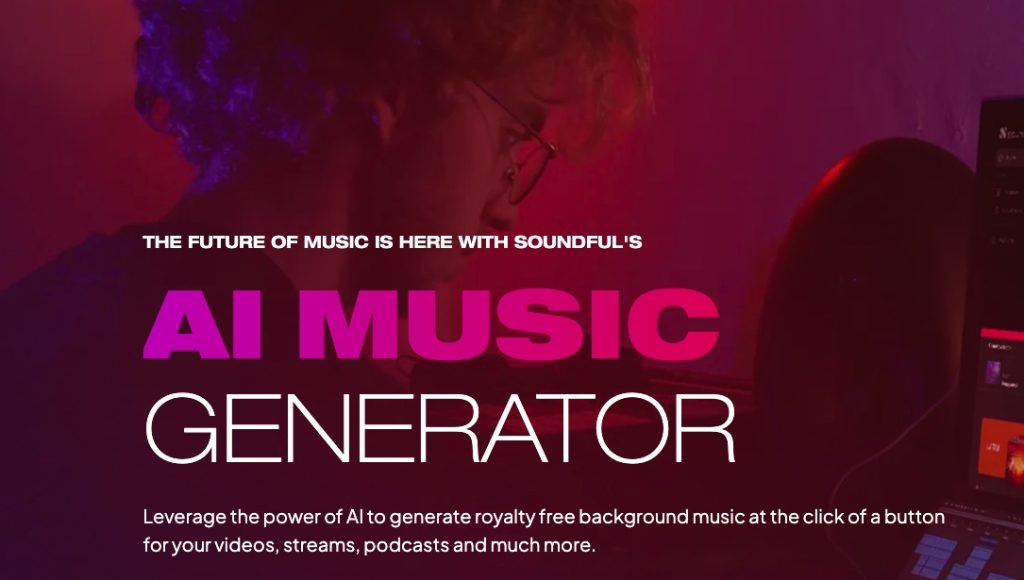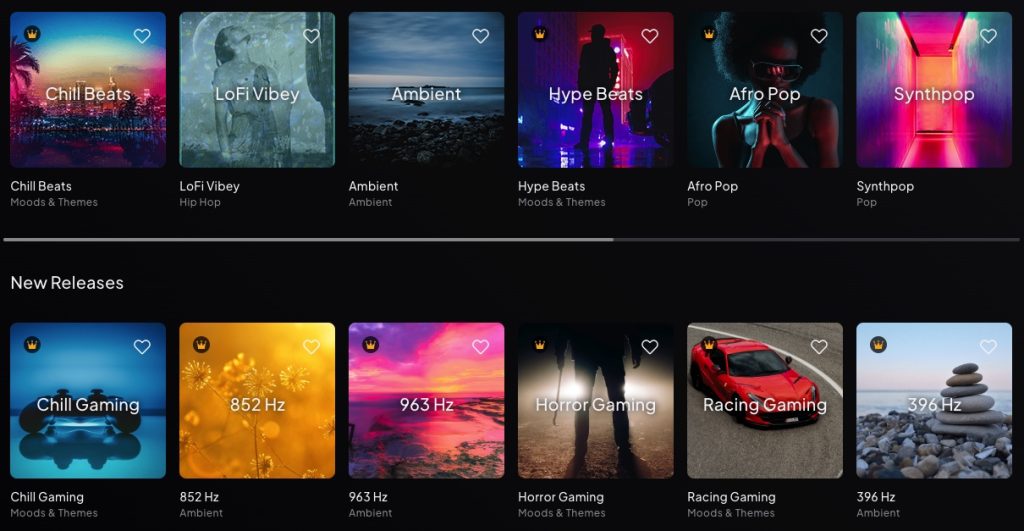Mastering the Art of Music Creation
Welcome to the rapidly changing world of music creation, thanks to technological advancements like Artificial Intelligence (AI).
Music is a universal language. It has always been a profound part of human life, shaping cultures and stirring emotions in a way few other things can. It has the power to bring joy, evoke memories, inspire change, and even unite people across diverse cultures.
Traditionally, creating music required extensive knowledge and skill, often limiting the ability to create to a select few. However, the advent of AI in music creation is transforming this scenario.
AI music generators are technological marvels that democratize music creation, making it accessible to everyone, irrespective of their musical expertise. Through complex algorithms and machine learning models, these AI tools can generate unique melodies, harmonies, and rhythms, infusing a fresh perspective into music creation. Whether you’re a professional music producer looking to expedite your process or a music enthusiast eager to dabble in creation, AI music generators can be your powerful allies.
It’s time to apply these tools to your own workflow to become the most powerful producer you can be.
What You Need to Know About AI Music Generators
What are they?
In the era of digital transformation, AI Music Generators have emerged as a cutting-edge application of technology in the realm of music. An AI Music Generator is an advanced tool that uses artificial intelligence and machine learning algorithms to generate music. Unlike traditional music composition, which relies heavily on human input and creativity, generative AI is capable of creating original music autonomously, often requiring minimal human intervention.
The workings of an AI Music Generator can be intuitively understood. The underlying technology is largely based on machine learning models. These models are trained on large datasets comprising a wide range of music genres, styles, and structures.
Once trained, the models can generate new music by predicting what note or sequence of notes comes next, based on the patterns and structures it has learned. Just as a musician might learn by studying and imitating various styles of music, AI models learn from the datasets they are trained on.
How do they play a role in the creative process?
The role of AI systems in music creation is often perceived with an overly pessimistic view. While we see that viewpoint and agree that its effect will be seismic, we disagree with the negativity. It’s a game changer on multiple fronts and in many positive ways.
Firstly, it democratizes music creation by making it accessible to all, regardless of musical expertise. With AI, a novice can create compositions that would otherwise require years of learning music theory and complex music production techniques.
Secondly, it expedites the music creation process. Tasks that once took hours, if not days, can now be completed in a fraction of the time.
Lastly, and perhaps most significantly, AI encourages a fusion of human creativity and machine intelligence, fostering a new frontier of musical innovation. With AI, the music industry is not only evolving—it’s being revolutionized.
What are the benefits of using AI Music Generators?
Speed and efficiency
The first benefit may seem a bit obvious – Speed. They bring unprecedented speed and efficiency to the music creation process. Artists can create high-quality music tracks in a fraction of the time.
With AI, creating a basic melody, harmony, or rhythm can be as simple as setting a few parameters and letting the system do its magic. For music producers operating under tight deadlines, this speed can be a game changer.
Unlimited creative potential
Next, AI Music Generators unlock unlimited creative potential. They are not bound by conventional music theory or the limitations of human memory and creativity. By drawing upon vast datasets and diverse musical styles, they can create unique compositions that push the boundaries of what is musically possible.
This can lead to fresh and innovative sounds that broaden the musical landscape. You can sift through hundreds of ideas quickly to find inspiration quickly, that’s the power of generative AI.
Accessibility for non-musicians
Another key advantage of AI Music Generators is their accessibility. With intuitive interfaces and user-friendly controls, AI Music Generators are opening the doors to music creation for anyone and everyone. Whether you’re a novice with a passion for music or a professional seeking to enhance your creative process, these tools provide an accessible platform to express your creativity.
Collaboration between human creativity and AI capabilities
Lastly, AI Music Generators foster a symbiotic relationship between human creativity and AI capabilities. They don’t replace the human touch in music; instead, they augment it. Artists can harness the computational power of AI to experiment with complex structures and unfamiliar styles, while still retaining control over the creative direction.
This collaboration can result in a fusion of styles and sounds that might have been inconceivable in the pre-AI era, taking music to new, uncharted territories.
Tips and Tricks for Using an AI Music Generator

Harnessing the power of an AI Music Generator can be both an exciting and challenging endeavor. Here are some tips and tricks to help you navigate this innovative tool, ensuring that you get the most out of your AI music creation journey.
Understanding the AI’s capabilities and limitations
Like any tool, generative AI models have their strengths and weaknesses. It excels at quickly generating music based on the data it’s been trained on, and it can mimic many different styles with ease. However, it is not human and cannot fully grasp the nuances and emotions that a human composer might inject into their work. Understanding these capabilities and limitations can help you set realistic expectations and use the tool more effectively.
Choosing the right genre, tempo, and mood settings

Most AI Music Generators allow you to fine tune your art by choosing parameters such as genre, tempo, and mood. These choices significantly influence the resulting music. Spend time exploring these settings and understanding how they affect the output.
For instance, a faster tempo and major key might be suitable for a happy, upbeat song, while a slower tempo and minor key might work better for a somber piece. Remember, there’s no right or wrong setting – it all depends on what you’re trying to achieve.
Combining AI generated music with human creativity
AI Music Generators often work best when used as a starting point for your composition. This is where you bring your creative energy to the table. Try experimenting with different input melodies or chord progressions and see how the AI develops them. If the output isn’t quite what you envisioned, don’t be afraid to tweak it.
You can adjust certain notes, rhythms, or harmonies to better fit your creative vision. The key is to iterate and refine until you’re satisfied with the result.
One of the most effective ways to use an AI Music Generator is to blend its output with your own creative input. This doesn’t mean just tweaking the AI’s output – it also means incorporating your own melodies, rhythms, or lyrics. By combining AI-generated music with your own creative elements, you can create a unique piece that reflects both the vast capabilities of AI and the distinctiveness of human creativity.
Utilizing AI for specific tasks (such as creating background scores or beats)
AI Music Generators can be particularly useful for certain tasks in the music creation process. For example, if you need a quick and catchy background score for a video, an AI tool can generate one in a matter of minutes. Or if you’re a rapper needing a unique beat to rap over, AI can provide a variety of options tailored to your specifications. By identifying the tasks where AI can be most beneficial, you can streamline your process and focus your creative energies where they’re needed most.
Conclusion
In conclusion, AI Music Generators are rapidly changing the landscape of music production. With all of the benefits that come with AI, creatives are finding it easier than ever to create more ideas and finish new projects in less time. Becoming familiar with these tools will be an incredibly important part of the music industry over the coming months and years.
The future of music is here, and it’s waiting for you to explore.

